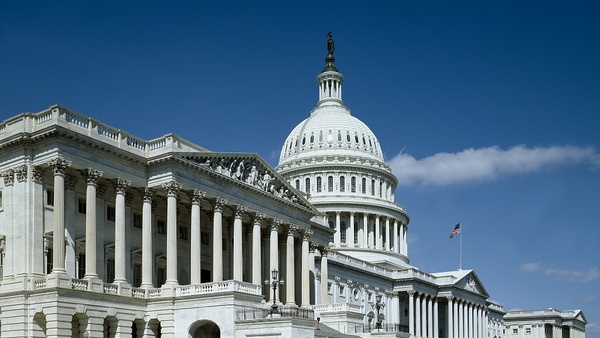
A Republican senator said today he will mount an effort to convince Congress to nullify the newly released CFPB’s arbitration rules.
“The CFPB has gone rogue again, abusing its power in a particularly harmful way,” said Sen. Tom Cotton (R-Ark.). “The Bureau’s new rule on arbitration clauses ignores the consumer benefits of arbitration and treats Arkansans like helpless children, incapable of making business decisions in their own best interests.”
Cotton said he has started the nullification process under the Congressional Review Act, which was little-used until this year, when the Republican-controlled Congress and the Trump Administration used it to void rules issued by the Obama Administration.
At the same time, Acting Comptroller of the Currency Keith Noreika expressed concerns about the rule and cited powers that the Financial Stability Oversight Council has to void CFPB rules.
The CFPB issued the final rule on Monday.
Under the rule, companies still can include arbitration clauses in their contracts, but they may not use those clauses to stop consumers from being part of a class action lawsuit. The rule specifies the language that must be used in the contract.
The rule also requires companies to submit to the CFPB detailed information about claims and awards made in arbitration. That data eventually will be made public, with consumer names and identifying data removed.
Credit union groups have argued that they should not be subject to the rule because a small number of credit unions use arbitration agreements. In addition, they said, since credit unions are member-owned, a member filing suit against the institution essentially is suing himself.
The CFPB specifically rejected that argument.
But Cotton said he intends to try to have the rule rescinded for all institutions.
Under the Congressional Review Act, Congress must act within 60 days of a rule being finalized to nullify it. Importantly, the nullification effort only takes 51 votes to pass in the Senate.
Until this year, the process was only used successfully once, but this year, Republicans have used it several times.
Presumably, the 60-day shot clock will start when the rules are published in the Federal Register—an act that has not yet occurred.
But that didn’t stop Cotton from announcing his intentions.
“This morning I’ve started the process of rescinding this rule using the Congressional Review Act,” he said today. “The last thing Americans need is more anti-business regulation that will prompt frivolous lawsuits while hurting consumers.”
House Financial Services Chairman Jeb Hensarling (R-Texas) agreed that the rule should be rescinded.
“As a matter of principle, policy, and process, this anti-consumer rule should be thoroughly rejected by Congress under the Congressional Review Act,” Hensarling said. “In the last election, the American people voted to drain the D.C. swamp of capricious, unaccountable bureaucrats who wish to control their lives.”
CFPB Director Richard Cordray said Monday he expected congressional opposition and Sen. Elizabeth Warren (D-Mass.), a staunch supporter of the CFPB echoed those sentiments.
“Big business lobbyists will spend millions of dollars attacking this rule and trying to get their Republican friends in Congress to reverse it and shield them from accountability,” she said.
Notably, even before the CFPB issued the rules, the plan drew concerns from Acting Comptroller of the Currency Keith Noreika, who expressed potential “safety and soundness concerns.”
“The OCC has a mandate to ensure the safety and soundness of the federal banking system,” Noreika said, in a letter dated Monday. “A variety of OCC staff have reviewed the CFPB’s arbitration proposal from this perspective and have expressed concerns about its potential impact on the institutions that make up the federal banking system and its customers.”
Noreika added that arbitration can be an effective alternative dispute resolution tool that can provide better outcomes for consumers without large legal bills.
Noreika asked the CFPB to share the data on which the rule is based and for the agency to work with the CFPB to address safety and soundness concerns.
Instead, the CFPB issued the final rules.
But in his letter, Noreika cited a section of Dodd-Frank that gives FSOC the power to vote on a petition to void a CFPB rule if a council member files a petition with the group.
Noreika is a member of the council. Before becoming the acting comptroller, he was an attorney representing financial institutions.
Credit union trade groups also expressed dismay at the CFPB rules.
“We are disappointed that the CFPB continues to apply new rules on credit unions when there is no evidence of consumer abuse by credit unions and as financial institutions that are member-owned, credit unions have a long history of working with their members to resolve disputes,” said CUNA President/CEO Jim Nussle.
NAFCU Executive Vice President of Government Affairs and General Counsel Carrie Hunt also said she is disappointed with the rule.
“NAFCU strongly supports protecting consumers’ rights, but we have also urged that credit unions not be made subject to rules addressing abuses in which they do not engage,” she said. “We expect that the political debate on this rule will continue and we will be engaged in that discussion.”
Former CUNA Chief lobbyist John McKechnie said the rule is ripe for CRA action.
“If any regulatory ruling deserves review by Congress, it’s this one,” said McKechnie, now a senior partner at Total Spectrum. “It’s hard to remember a more excessive and one-sided regulation from CFPB.”


